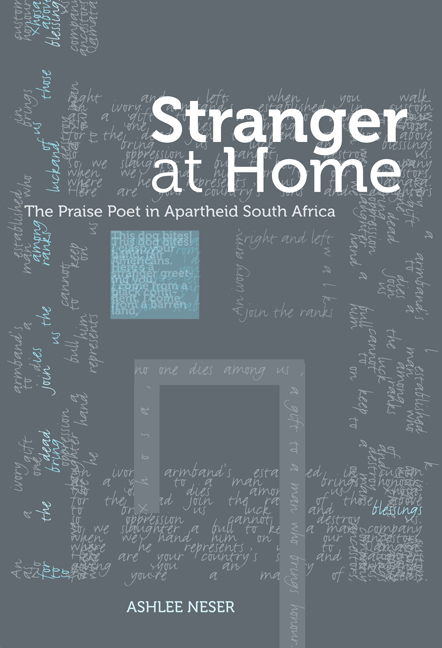seven - Conclusion
from part two
Published online by Cambridge University Press: 17 May 2019
Summary
The archive of David Manisi's izibongo is substantial: it comprises more than 40 taped and transcribed performances, five books, an unpublished manuscript, and a set of retrieved newspaper contributions. In addition, the Opland Collection of Xhosa Literature houses recordings and transcripts of interviews with Manisi conducted by Opland and by various American students. The complete archive, from first newspaper poem to final academic performance, spans a period of 41 years. Yet, as with all such academic collections, there are many gaps in Manisi's performance career that the archive is unable to supply. We know nothing, for example, about Manisi's performance poetry of the late 1950s and the 1960s. We do know that in the first part of this period he was the secretary of the ANC's Queenstown branch and that he performed as an imbongi at local ANC meetings. However, in what terms he characterised his listeners and crafted his political messages for them, we shall never discover. After the ANC's banning and Manisi's detention by East London authorities, the poet returned to his home in Transkei and appeared occasionally at events of importance to his local community and chief, Mathanzima. How Manisi understood his return to the rural polity in those years or his role as an occasional poet of the chief he had left a decade earlier, we can only guess from the few recordings of the poet's Transkei performances which the archive supplies for 1974 and 1976. Nor, as I suggested in the Introduction, do we have a record of any poems Manisi may have performed during his brief return to Unitra in the late 1980s. How might he have crafted poetic address for black academics? We cannot know.
The poems available to us suggest a career of struggle with the question of how to reconcile the political communities envisaged by his ANC audiences of the late 1950s and his rural, chief-subjects of the 1960s. The gap in the archive is significant. Yet, what we have indicates starkly the contradictions in Manisi's political vision. I have argued in this book that, in spanning the apartheid period, Manisi's poetry reflects the increasingly compromised and compromising discourses and contexts in which the rural imbongi operated.
- Type
- Chapter
- Information
- Stranger at HomeThe Praise Poet in Apartheid South Africa, pp. 239 - 246Publisher: Wits University PressPrint publication year: 2011



